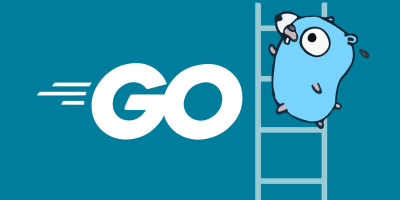Basic JavaScript
หลักสูตร Basic JavaScript นี้ถูกออกแบบมาเพื่อให้ผู้เรียนได้เรียนรู้พื้นฐานของภาษา JavaS...

Go หรือ Golang เป็นภาษาโปรแกรมมิ่งที่มีการพัฒนาโดย Google และถูกออกแบบมาเพื่อให้มีประสิทธิภาพสูง มีความปลอดภัย และเหมาะสมกับการพัฒนาโปรแกรมแบบ Concurrent หรือการทำงานพร้อมกันหลายเทรด (Concurrency) ซึ่งเป็นส่วนหนึ่งของความเป็นภาษาซึ่งมีความเป็นเนื้อหาเด่นของ Golang
Go ถูกออกแบบขึ้นมาในปี 2009 โดย Rob Pike, Ken Thompson, และ Robert Griesemer ซึ่งเป็นผู้พัฒนาที่มีชื่อเสียงในโลกโปรแกรมมิ่ง ความเร็วในการคอมไพล์ Go สูง และช่วยให้โปรแกรมที่เขียนด้วย Go มีประสิทธิภาพสูงในการทำงาน โดยเฉพาะการทำงานกับเว็บ
ภาษา Go เป็นภาษาแบบสามารถคอมไพล์ได้และเป็นภาษาแบบ Statically typed ซึ่งหมายความว่าต้องประกาศตัวแปรก่อนใช้งาน และมีเครื่องมือช่วยการจัดการข้อผิดพลาด (Error Handling) ที่ดี โดยเซตของฟังก์ชันและการใช้งานของโค้ดจะเขียนในรูปแบบของ Module ที่ช่วยให้การจัดการโค้ดและการแบ่งแยกโค้ดมีความสะดวกสบายและเป็นระเบียบมาก
Module 1: Introduction to Go
Module 2: Environment Setup
Module 3: Beginning With Go
Module 4: Variables, Data Types, and Constants
Module 5: Operator
Module 6: Control Structures
Module 7: Functions
Module 8: Returning Multiple Values from Functions
Module 9: Arrays and Slices
Module 10: Strings
Module 11: Pointers
Module 12: Structures
Module 13: Composition
Module 14: Interfaces and Polymorphism
Module 15: Maps
Module 16: Concurrency with Go
Module 17: Mutex and Channels
Module 18: Error Handling
Module 19: Reflection
Module 20: Building Web Application
หลักสูตร Basic JavaScript นี้ถูกออกแบบมาเพื่อให้ผู้เรียนได้เรียนรู้พื้นฐานของภาษา JavaS...
ปัจจุบันมีการนำข้อมูลขนาดใหญ่ (Big Data) กันมากขึ้นตามหน่วยงานต่างในบ้านเรา ขั้นตอนการส...
Django เป็นหนึ่งเฟรมเวิร์คที่ได้รับความนิยมในการนำไปพัฒนาเว็บไซต์ระดับโลกมากมาย อาทิ In...
ด้วยความต้องการที่เพิ่มขึ้นสำหรับนักพัฒนาแบบ Full-Stack มีความจำเป็นที่จะต้องเรียนรู้กา...
หลักสูตรนี้เป็นพื้นฐานการเรียนรู้ภาษา Python สำหรับการนำไปต่อยอดด้าน internet of things...